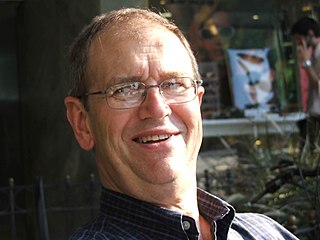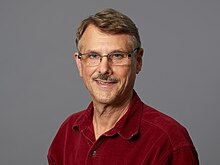Evidence-based medicine (EBM) is "the conscientious, explicit and judicious use of current best evidence in making decisions about the care of individual patients." The aim of EBM is to integrate the experience of the clinician, the values of the patient, and the best available scientific information to guide decision-making about clinical management. The term was originally used to describe an approach to teaching the practice of medicine and improving decisions by individual physicians about individual patients.

A medical guideline is a document with the aim of guiding decisions and criteria regarding diagnosis, management, and treatment in specific areas of healthcare. Such documents have been in use for thousands of years during the entire history of medicine. However, in contrast to previous approaches, which were often based on tradition or authority, modern medical guidelines are based on an examination of current evidence within the paradigm of evidence-based medicine. They usually include summarized consensus statements on best practice in healthcare. A healthcare provider is obliged to know the medical guidelines of their profession, and has to decide whether to follow the recommendations of a guideline for an individual treatment.
A hierarchy of evidence, comprising levels of evidence (LOEs), that is, evidence levels (ELs), is a heuristic used to rank the relative strength of results obtained from experimental research, especially medical research. There is broad agreement on the relative strength of large-scale, epidemiological studies. More than 80 different hierarchies have been proposed for assessing medical evidence. The design of the study and the endpoints measured affect the strength of the evidence. In clinical research, the best evidence for treatment efficacy is mainly from meta-analyses of randomized controlled trials (RCTs). Systematic reviews of completed, high-quality randomized controlled trials – such as those published by the Cochrane Collaboration – rank the same as systematic review of completed high-quality observational studies in regard to the study of side effects. Evidence hierarchies are often applied in evidence-based practices and are integral to evidence-based medicine (EBM).
David Lawrence Sackett was an American-Canadian physician and a pioneer in evidence-based medicine. He is known as one of the fathers of Evidence-Based Medicine. He founded the first department of clinical epidemiology in Canada at McMaster University, and the Oxford Centre for Evidence-Based Medicine. He is well known for his textbooks Clinical Epidemiology and Evidence-Based Medicine.

Victor Montori is a professor of medicine at the Mayo Clinic in Rochester, Minnesota, USA. He was born and raised in Lima, Peru. He completed medical school at Universidad Peruana Cayetano Heredia in Peru, before joining the Internal Medicine Residency Program at the Mayo Clinic. He was named Chief Resident of the Department of Internal Medicine from 1999 to 2000.

Narrative Medicine is the discipline of applying the skills used in analyzing literature to interviewing patients. The premise of narrative medicine is that how a patient speaks about his or her illness or complaint is analogous to how literature offers a plot with characters and is filled with metaphors, and that becoming conversant with the elements of literature facilitates understanding the stories that patients bring. Narrative Medicine is a diagnostic and comprehensive approach that utilizes patients' narratives in clinical practice, research, and education to promote healing. Beyond attempts to reach accurate diagnoses, it aims to address the relational and psychological dimensions that occur in tandem with physical illness. Narrative medicine aims not only to validate the experience of the patient, it also encourages creativity and self-reflection in the physician.

The Users’ Guides to the Medical Literature is a series of articles originally published in the Journal of the American Medical Association, later rewritten and compiled in a textbook, now in its third edition. The guides provide practical, clinician-friendly advice on all aspects of evidence-based medicine.
David M. Eddy is an American physician, mathematician, and healthcare analyst who has done seminal work in mathematical modeling of diseases, clinical practice guidelines, and evidence-based medicine. Four highlights of his career have been summarized by the Institute of Medicine of the National Academy of Sciences: "more than 25 years ago, Eddy wrote the seminal paper on the role of guidelines in medical decision-making, the first Markov model applied to clinical problems, and the original criteria for coverage decisions; he was the first to use and publish the term 'evidence-based'."

The Michael G. DeGroote School of Medicine, known as the McMaster University School of Medicine prior to 2004, is the medical school of McMaster University in Hamilton, Ontario, Canada. It is operated by the McMaster Faculty of Health Sciences. It is one of two medical programs in Canada, along with the University of Calgary, that operates on an accelerated 3-year MD program, instead of the traditional 4-year MD program.
Salim Yusuf is an Indian-born Canadian physician, the Marion W. Burke Chair in Cardiovascular Disease at McMaster University Medical School. He is a cardiologist and epidemiologist. Yusuf has criticized the Dietary Guidelines for Americans and disputes the scientific consensus on dietary sodium and saturated fat intake.
Thomas G. McGinn is an American physician, Educator, and researcher in Evidence Based Medicine, Clinical Prediction Rules, clinical decision support. McGinn is the EVP of CommonSpirit Health and Professor of Medicine at Baylor College of Medicine
The GRADE approach is a method of assessing the certainty in evidence and the strength of recommendations in health care. It provides a structured and transparent evaluation of the importance of outcomes of alternative management strategies, acknowledgment of patients and the public values and preferences, and comprehensive criteria for downgrading and upgrading certainty in evidence. It has important implications for those summarizing evidence for systematic reviews, health technology assessments, and clinical practice guidelines as well as other decision makers.
Kameshwar Prasad is an Indian neurologist, medical researcher, academic and the head of the Department of Neurology at the All India Institute of Medical Sciences, Delhi (AIIMS), known as a proponent of evidence-based medicine (EBM) and evidence-based healthcare (EBHC). The government of India awarded him the fourth highest civilian honour of the Padma Shri in 1991.
Holger Jens Schünemann is a physician and professor of medicine and Clinical epidemiology. From 1 February 2009 to 30 June 2019 he was the chair of the Department of Health Research Methods, Evidence, and Impact at McMaster University in Hamilton, Canada, where he now works as full professor.
Alejandro R. Jadad Bechara is a Canadian-Colombian physician whose work focuses on the creation of a pandemic of health through digital technologies and collaboration across traditional boundaries. He is also known as the researcher responsible for the development of the Jadad Scale, the first validated tool to assess the methodological quality of clinical trials.
A fact box is a simplified display format that presents evidence based data about the benefits and harms of medical treatments, screenings or interventions.

Robert Brian Haynes OC is a Canadian physician, clinical epidemiologist, researcher and an academic. He is professor emeritus at McMaster University and one of the founders of evidence-based medicine.

Peter Tugwell is a Canadian physician and Professor in the Department of Medicine and School of Epidemiology and Public Health at the University of Ottawa. He is known for promoting clinical epidemiology and championing for health equity worldwide. In 2013 he was named Officer of the Order of Canada for his efforts as "tireless contributor to global health".
Philip James Devereaux is a Canadian cardiologist, clinical epidemiologist, and perioperative care physician. Devereaux conducts clinical research within cardiac and perioperative fields, with a focus on vascular surgical complications.
Kaveh G. Shojania is a Canadian doctor, academic and an author. He is the vice chair of quality & innovation in the department of medicine at the University of Toronto as well as staff physician at the Sunnybrook Health Sciences Centre.







